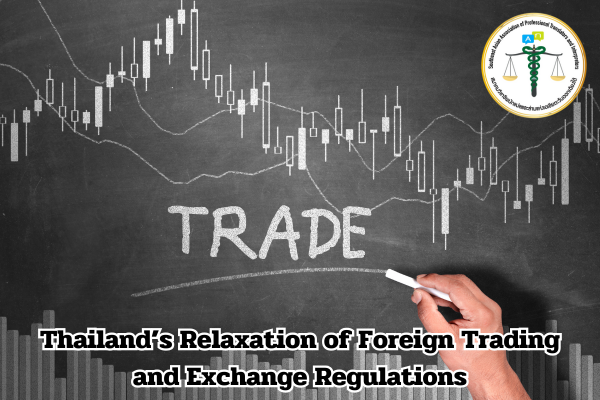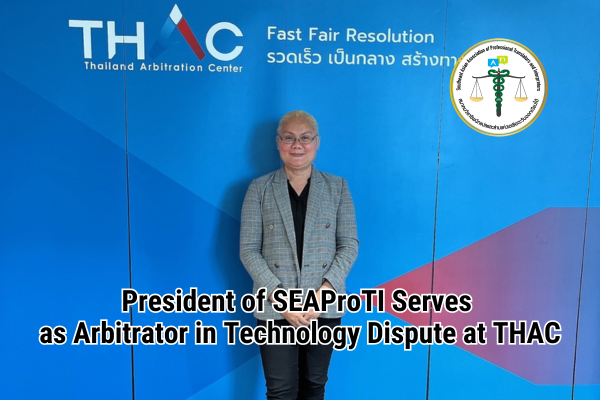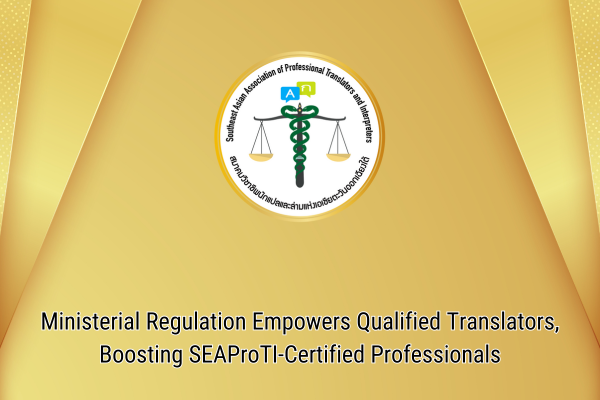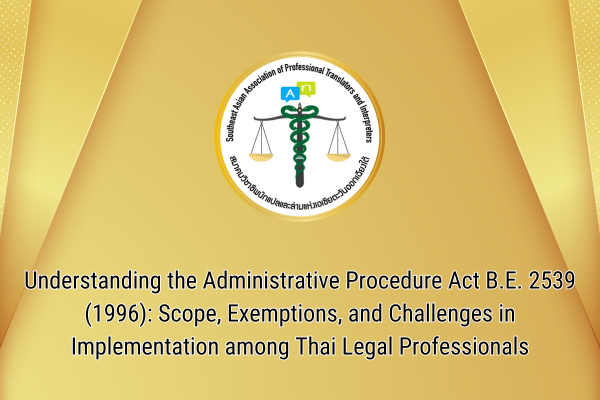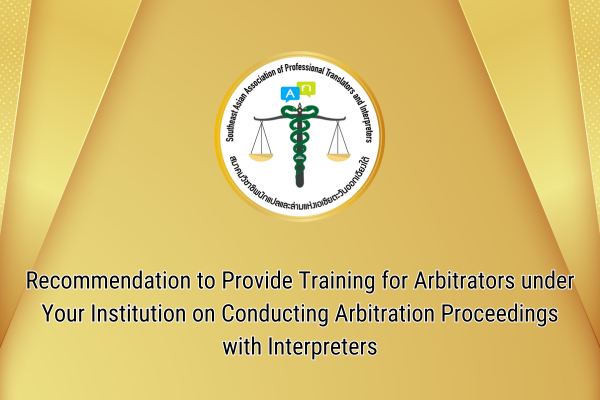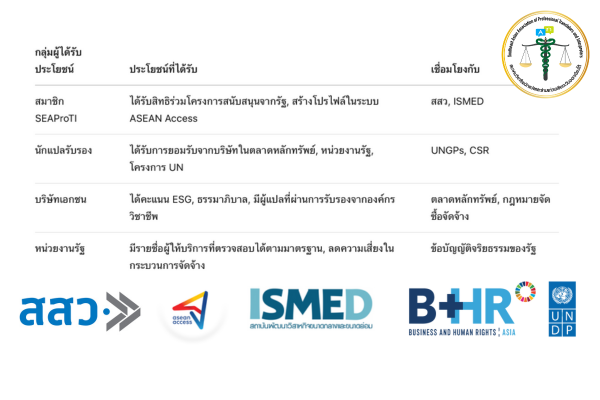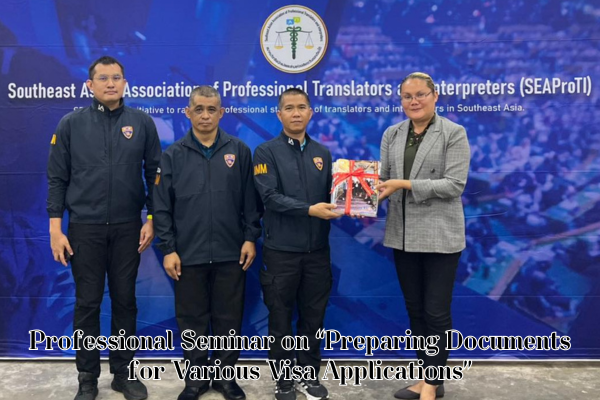Thailand’s Relaxation of Foreign Trading and Exchange Regulations
3 February 2025, Bangkok – The Thai government, through the Ministry of Finance and the Bank of Thailand (BOT), has eased foreign exchange and trading regulations to counteract the significant imbalance between the Thai baht and foreign currencies. The new measures, effective since late last year, aim to reduce pressure on the baht while fostering economic growth through enhanced export activities, foreign securities investments, and more flexible capital outflows. These regulatory relaxations also simplify documentation and verification processes for foreign transactions, increasing the maximum allowable transfer amount without extensive documentation from $50,000 to $200,000.
Key Reforms in Foreign Exchange Transactions
Since the implementation of the new regulations, significant changes have been observed in foreign exchange transactions at the BOT. These reforms result from extensive collaboration between the BOT, the Chamber of Commerce, Thai commercial banks, and foreign exchange enterprises, reviewing more than 80 existing regulations and laws. The primary goal is to streamline business negotiations, reduce transaction costs, and improve the efficiency of international fund transfers.
Notable changes include the expanded acceptance of online documentation for commercial banks, allowing businesses in neighboring countries with infrastructure investments in Thailand to secure loans in Thai currency. Payments for goods and services can now be processed via international transfer networks, broadening alternatives beyond traditional banking systems.
Industries such as tourism and hospitality have long advocated for measures to stabilize the Thai baht, as its volatility has negatively impacted tourism. The baht depreciated significantly, falling from $32.96 to $30.13 before the end of last year, prompting urgent intervention.
Future policy changes may further ease foreign investment procedures by eliminating the requirement for financial statement submissions and simplifying documentation for foreign currency transactions. These advancements will also allow foreign exchange traders to conduct transactions electronically.
Relaxations in Foreign Trading and Exchange
The newly introduced regulations primarily aim to grant exporters greater control over their foreign currency revenues and facilitate smoother foreign fund transfers. Key relaxations include:
Repatriation of Foreign Export Proceeds
Exporters no longer need to repatriate foreign earnings below $200,000 per bill of lading, allowing greater flexibility in fund management. This threshold, based on 2018 export data, applies to over $100 billion worth of trade transactions.
Exporters earning more than $200,000 can use foreign revenues for expenditure settlements without mandatory repatriation, provided they register with the BOT and comply with documentation requirements set by commercial banks. BOT approval is no longer necessary.
Foreign currency deposit regulations for Thai banks are being revised to improve overall currency management flexibility.
The BOT and the Ministry of Finance are currently discussing an increase in the non-repatriation threshold to $1 billion per bill of lading within the next three months. This change aims to optimize international fund transfers and mitigate foreign exchange risks.
Foreign Securities Investment
Retail investors can now invest up to $200,000 annually in foreign securities without requiring an intermediary institution. Previously, investors needed to meet specific asset ownership criteria to engage in direct foreign investments.
Additionally, the Thai Securities and Exchange Commission (SEC) has raised the overall foreign investment cap to $150 billion, encouraging broader participation in international portfolio investments. Investors can also retain their allocated investment limits for extended periods, promoting better financial planning and management.
Outgoing Fund Transfers
The new policy broadens the range of permissible fund transfers:
Investors seeking to relocate their businesses or send funds to relatives abroad face no transfer limits.
The annual cap on overseas real estate purchases remains at $50 million, but properties can now be registered under a family member’s name. This modification is expected to facilitate international migration and support families sending children abroad for education.
Transactions under $200,000 no longer require supporting documentation for commercial bank approval.
Gold Trading Settlements in Foreign Currency
Previously, gold trading in Thailand was exclusively conducted in Thai baht. However, recent regulatory changes allow Thai investors to settle gold transactions in foreign currencies through BOT-approved trading companies. This reform is designed to alleviate pressure on the baht and provide more flexibility in gold trading.
Investors can now retain their foreign currency revenues from gold transactions in foreign accounts without converting them into Thai baht for future purchases. The BOT is also preparing to approve gold futures trading in foreign currencies as part of the next phase of these financial relaxations.
Expanding Investment Opportunities for Qualified Investors
Before the reforms, only 11 categories of investors, including institutional investors, high-net-worth individuals, and Qualified Investors (QIs), were permitted to engage in foreign investment instruments. QIs—defined as individuals or entities with at least 50 million baht in assets or deposits—can now invest in a broader range of financial products, including:
- Over-the-counter (OTC) derivatives
- Universal life insurance policies
- Unit-linked life insurance
- Endowment life insurance
Furthermore, previous restrictions on QIs’ investment destinations have been lifted, allowing them to diversify their portfolios across global markets without geographical limitations.
The Role of Certified Translators, Translation Certifiers, and Certified Interpreters in the Reforms
The recent regulatory changes require businesses and investors to navigate complex legal documentation, regulatory approvals, and financial agreements across multiple jurisdictions. This is where professional language services, particularly those provided by certified translators, translation certifiers, and certified interpreters, play a crucial role.
The Southeast Asia Professional Translators and Interpreters Association (SEAProTI) has been instrumental in facilitating compliance with the new policies. Certified translators ensure that legal documents, financial reports, and regulatory filings are accurately translated and officially recognized by Thai authorities and international financial institutions.
Translation certifiers play a vital role in verifying the accuracy and authenticity of translated documents, ensuring they meet the legal requirements of both Thai and international regulatory bodies. Their services are particularly important for companies engaging in cross-border transactions, as well as investors applying for foreign securities investments.
Meanwhile, certified interpreters bridge language gaps in high-level negotiations between Thai financial institutions, foreign investors, and government entities. Given the increased involvement of international stakeholders in Thailand’s economic reforms, interpreters facilitate smooth communication during regulatory discussions, investment planning, and legal consultations.
As Thailand continues to integrate with the global financial market, the demand for certified translation and interpretation services will grow. Their contributions not only support compliance with new foreign exchange regulations but also enhance transparency, efficiency, and investor confidence in Thailand’s evolving economic landscape.
SEAProTI’s certified translators, translation certification providers, and certified interpreters:
The Southeast Asian Association of Professional Translators and Interpreters (SEAProTI) has officially announced the criteria and qualifications for individuals to register as “Certified Translators,” “Translation Certification Providers,” and “Certified Interpreters” under the association’s regulations. These guidelines are detailed in Sections 9 and 10 of the Royal Thai Government Gazette, issued by the Secretariat of the Cabinet under the Office of the Prime Minister of the Kingdom of Thailand, dated July 25, 2024, Volume 141, Part 66 Ng, Page 100.
To read the full publication, visit the Royal Thai Government Gazette
การผ่อนคลายข้อบังคับการค้าระหว่างประเทศและการแลกเปลี่ยนเงินตราต่างประเทศของไทย
3 กุมภาพันธ์ 2568, กรุงเทพมหานคร- รัฐบาลไทยผ่านกระทรวงการคลังและธนาคารแห่งประเทศไทย (ธปท.) ได้ผ่อนคลายข้อบังคับเกี่ยวกับการแลกเปลี่ยนเงินตราต่างประเทศและการค้าระหว่างประเทศ เพื่อแก้ไขความไม่สมดุลที่สำคัญระหว่างเงินบาทและสกุลเงินต่างประเทศ มาตรการใหม่ที่มีผลตั้งแต่ปลายปีที่แล้วมีเป้าหมายเพื่อลดความกดดันต่อเงินบาทและกระตุ้นการเติบโตทางเศรษฐกิจผ่านกิจกรรมการส่งออกที่เพิ่มขึ้น การลงทุนในหลักทรัพย์ต่างประเทศ และการโอนเงินทุนที่ยืดหยุ่นมากขึ้น ข้อบังคับเหล่านี้ยังช่วยให้ง่ายต่อการจัดทำเอกสารและการตรวจสอบการทำธุรกรรมต่างประเทศ โดยเพิ่มจำนวนเงินสูงสุดที่สามารถโอนโดยไม่ต้องมีเอกสารมากจาก 50,000 ดอลลาร์สหรัฐเป็น 200,000 ดอลลาร์สหรัฐ
การปฏิรูปการทำธุรกรรมแลกเปลี่ยนเงินตราต่างประเทศ
ตั้งแต่มีการบังคับใช้ข้อบังคับใหม่ มีการเปลี่ยนแปลงที่สำคัญในธุรกรรมแลกเปลี่ยนเงินตราต่างประเทศที่ธปท. การปฏิรูปเหล่านี้เกิดจากการร่วมมือกันอย่างเข้มข้นระหว่างธปท. หอการค้าไทย ธนาคารพาณิชย์ของไทย และบริษัทแลกเปลี่ยนเงินตราต่างประเทศ ซึ่งได้ทบทวนกฎหมายและข้อบังคับเดิมมากกว่า 80 ฉบับ โดยมีเป้าหมายหลักเพื่อทำให้การเจรจาธุรกิจสะดวกยิ่งขึ้น ลดต้นทุนในการทำธุรกรรม และเพิ่มประสิทธิภาพในการโอนเงินระหว่างประเทศ
การเปลี่ยนแปลงที่สำคัญรวมถึงการยอมรับเอกสารออนไลน์จากธนาคารพาณิชย์ ซึ่งช่วยให้ธุรกิจจากประเทศเพื่อนบ้านที่มีการลงทุนในโครงสร้างพื้นฐานในไทยสามารถขอสินเชื่อในสกุลเงินบาทได้ นอกจากนี้ยังสามารถชำระค่าสินค้าและบริการผ่านเครือข่ายการโอนเงินระหว่างประเทศ ซึ่งเปิดทางเลือกใหม่ ๆ นอกเหนือจากระบบธนาคารแบบดั้งเดิม
อุตสาหกรรมที่เกี่ยวข้องกับการท่องเที่ยวและการบริการที่เคยเรียกร้องให้มีการควบคุมเสถียรภาพของเงินบาทเนื่องจากความผันผวนที่ส่งผลกระทบต่อการท่องเที่ยว เมื่อเงินบาทอ่อนค่าอย่างมากจาก 32.96 ดอลลาร์สหรัฐเหลือ 30.13 ดอลลาร์สหรัฐก่อนสิ้นปีที่ผ่านมา ทำให้มีการเข้าแทรกแซงอย่างเร่งด่วน
ในอนาคตอาจมีการเปลี่ยนแปลงนโยบายเพิ่มเติมเพื่อผ่อนคลายขั้นตอนการลงทุนต่างประเทศ โดยอาจยกเลิกข้อกำหนดการยื่นงบการเงินและทำให้เอกสารการทำธุรกรรมเงินตราต่างประเทศง่ายขึ้น นอกจากนี้ยังช่วยให้ผู้ประกอบการในตลาดแลกเปลี่ยนเงินตราสามารถทำธุรกรรมทางอิเล็กทรอนิกส์ได้
การผ่อนคลายข้อบังคับการค้าระหว่างประเทศและการแลกเปลี่ยนเงินตราต่างประเทศ
ข้อบังคับใหม่ที่นำเข้ามามีเป้าหมายหลักในการให้ผู้ส่งออกมีอำนาจในการบริหารจัดการรายได้จากเงินตราต่างประเทศได้ดีขึ้นและทำให้การโอนเงินทุนระหว่างประเทศสะดวกยิ่งขึ้น การผ่อนคลายที่สำคัญมีดังนี้:
การนำรายได้จากการส่งออกกลับประเทศ
ผู้ส่งออกไม่จำเป็นต้องนำรายได้จากการส่งออกที่มีมูลค่าต่ำกว่า 200,000 ดอลลาร์สหรัฐต่อใบขนส่งกลับประเทศ ซึ่งช่วยให้มีความยืดหยุ่นในการบริหารจัดการเงินทุน ขีดจำกัดนี้ใช้กับการทำธุรกรรมการค้าระหว่างประเทศที่มีมูลค่ากว่า 100,000 ล้านดอลลาร์สหรัฐ
ผู้ส่งออกที่มีรายได้จากการส่งออกมากกว่า 200,000 ดอลลาร์สหรัฐสามารถใช้รายได้จากต่างประเทศสำหรับการชำระค่าใช้จ่ายโดยไม่ต้องนำกลับประเทศ หากได้ทำการลงทะเบียนกับธปท. และปฏิบัติตามข้อกำหนดเอกสารจากธนาคารพาณิชย์ ซึ่งไม่จำเป็นต้องได้รับการอนุมัติจากธปท.
กฎระเบียบเกี่ยวกับการฝากเงินในสกุลเงินต่างประเทศในธนาคารไทยกำลังได้รับการทบทวนเพื่อเพิ่มความยืดหยุ่นในการบริหารจัดการเงินตรา
การลงทุนในหลักทรัพย์ต่างประเทศ
นักลงทุนรายย่อยสามารถลงทุนในหลักทรัพย์ต่างประเทศได้ถึง 200,000 ดอลลาร์สหรัฐต่อปีโดยไม่ต้องผ่านสถาบันกลาง ก่อนหน้านี้ นักลงทุนต้องมีคุณสมบัติในเรื่องของการเป็นเจ้าของสินทรัพย์บางประเภทเพื่อที่จะลงทุนในหลักทรัพย์ต่างประเทศโดยตรง
นอกจากนี้ คณะกรรมการกำกับหลักทรัพย์และตลาดหลักทรัพย์ (กลต.) ยังได้ยกเพดานการลงทุนต่างประเทศโดยรวมขึ้นเป็น 150,000 ล้านดอลลาร์สหรัฐ เพื่อกระตุ้นการมีส่วนร่วมในการลงทุนในพอร์ตการลงทุนระหว่างประเทศ
การโอนเงินออกจากประเทศ
นโยบายใหม่ได้ขยายขอบเขตการโอนเงินออกจากประเทศ:
นักลงทุนที่ต้องการย้ายธุรกิจหรือส่งเงินให้ครอบครัวที่อยู่ต่างประเทศไม่ต้องมีข้อจำกัดในการโอนเงิน
เพดานการซื้ออสังหาริมทรัพย์ต่างประเทศยังคงอยู่ที่ 50 ล้านดอลลาร์สหรัฐต่อปี แต่สามารถจดทะเบียนอสังหาริมทรัพย์ในนามของสมาชิกในครอบครัวได้ การปรับนี้คาดว่าจะสนับสนุนการย้ายถิ่นฐานระหว่างประเทศและช่วยเหลือครอบครัวที่ส่งบุตรหลานไปศึกษาต่อต่างประเทศ
ธุรกรรมที่มีมูลค่าต่ำกว่า 200,000 ดอลลาร์สหรัฐไม่จำเป็นต้องมีเอกสารสนับสนุนในการอนุมัติจากธนาคารพาณิชย์
การชำระเงินจากการซื้อขายทองคำในสกุลเงินต่างประเทศ
ก่อนหน้านี้ การซื้อขายทองคำในประเทศไทยต้องทำในสกุลเงินบาทเท่านั้น แต่การปรับกฎระเบียบใหม่ทำให้สามารถชำระเงินในการซื้อขายทองคำในสกุลเงินต่างประเทศได้ผ่านบริษัทการค้าทองคำที่ได้รับอนุมัติจากธปท. การเปลี่ยนแปลงนี้มีเป้าหมายเพื่อลดแรงกดดันต่อเงินบาทและให้ความยืดหยุ่นมากขึ้นในการซื้อขายทองคำ
นักลงทุนสามารถเก็บรายได้จากการซื้อขายทองคำในบัญชีเงินตราต่างประเทศโดยไม่ต้องแปลงเป็นเงินบาทสำหรับการซื้อครั้งต่อไป ธปท. กำลังเตรียมอนุมัติการซื้อขายทองคำล่วงหน้าในสกุลเงินต่างประเทศในขั้นตอนถัดไป
การขยายโอกาสการลงทุนสำหรับนักลงทุนที่มีคุณสมบัติ
ก่อนการปฏิรูป มีการจำกัดการลงทุนในเครื่องมือทางการเงินต่างประเทศเฉพาะ 11 หมวดหมู่นักลงทุน เช่น นักลงทุนสถาบัน นักลงทุนรายใหญ่ และนักลงทุนที่มีคุณสมบัติ (QIs) ซึ่งเป็นบุคคลหรือองค์กรที่มีสินทรัพย์หรือเงินฝากอย่างน้อย 50 ล้านบาท ตอนนี้นักลงทุนที่มีคุณสมบัติสามารถลงทุนในผลิตภัณฑ์ทางการเงินที่หลากหลายมากขึ้น เช่น:
- อนุพันธ์ที่ซื้อขายนอกตลาด (OTC)
- ประกันชีวิตยูนิเวอร์แซล
- ประกันชีวิตที่เชื่อมโยงกับหน่วยลงทุน
- ประกันชีวิตแบบเงินลงทุน
นอกจากนี้ข้อจำกัดเกี่ยวกับจุดหมายการลงทุนของนักลงทุนที่มีคุณสมบัติได้ถูกยกเลิกแล้ว ทำให้นักลงทุนสามารถกระจายการลงทุนไปทั่วโลกโดยไม่จำกัดในด้านภูมิศาสตร์
บทบาทของนักแปลที่ได้รับการรับรอง ผู้รับรองการแปล และล่ามที่ได้รับการรับรองในการปฏิรูป
การเปลี่ยนแปลงทางกฎระเบียบล่าสุดทำให้ธุรกิจและนักลงทุนต้องเผชิญกับเอกสารทางกฎหมาย การอนุมัติทางกฎระเบียบ และข้อตกลงทางการเงินที่ซับซ้อนข้ามเขตแดน ซึ่งเป็นบทบาทที่สำคัญของบริการภาษา โดยเฉพาะอย่างยิ่งการบริการจากนักแปลที่ได้รับการรับรอง ผู้รับรองการแปล และล่ามที่ได้รับการรับรอง
สมาคมล่ามและนักแปลมืออาชีพแห่งเอเชียตะวันออกเฉียงใต้ (SEAProTI) มีบทบาทสำคัญในการช่วยให้การปฏิบัติตามนโยบายใหม่เป็นไปอย่างราบรื่น นักแปลที่ได้รับการรับรองช่วยแปลเอกสารทางกฎหมาย รายงานการเงิน และการยื่นขออนุมัติทางกฎระเบียบให้ถูกต้องและได้รับการยอมรับจากหน่วยงานราชการไทยและสถาบันการเงินระหว่างประเทศ
ผู้รับรองการแปลมีบทบาทในการยืนยันความถูกต้องและความเป็นทางการของเอกสารที่แปล เพื่อให้ตรงตามข้อกำหนดทางกฎหมายของทั้งหน่วยงานกำกับดูแลไทยและระหว่างประเทศ บริการของพวกเขามีความสำคัญโดยเฉพาะสำหรับบริษัทที่มีการทำธุรกรรมข้ามพรมแดนและนักลงทุนที่ขอใช้บริการการลงทุนในหลักทรัพย์ต่างประเทศ
ในขณะเดียวกัน ล่ามที่ได้รับการรับรองช่วยขจัดอุปสรรคทางภาษาในการเจรจาระดับสูงระหว่างสถาบันการเงินไทย นักลงทุนต่างประเทศ และหน่วยงานรัฐบาล เนื่องจากการมีส่วนร่วมของผู้มีส่วนได้ส่วนเสียระหว่างประเทศในการปฏิรูปเศรษฐกิจของไทยเพิ่มมากขึ้น ล่ามจึงมีบทบาทในการอำนวยความสะดวกในการสื่อสารระหว่างการเจรจาทางกฎระเบียบ การวางแผนการลงทุน และการปรึกษากฎหมาย
ในขณะที่ประเทศไทยยังคงพัฒนาเข้าสู่ตลาดการเงินโลก ความต้องการบริการการแปลและล่ามที่ได้รับการรับรองจะเพิ่มขึ้น บทบาทของพวกเขาช่วยสนับสนุนการปฏิบัติตามข้อกำหนดการแลกเปลี่ยนเงินตราต่างประเทศใหม่ๆ รวมทั้งเพิ่มความโปร่งใส ประสิทธิภาพ และความมั่นใจของนักลงทุนในภูมิทัศน์เศรษฐกิจที่กำลังพัฒนาในประเทศไทย
เกี่ยวกับนักแปลรับรอง ผู้รับรองการแปล และล่ามรับรองของสมาคมวิชาชีพนักแปลและล่ามแห่งเอเชียตะวันออกเฉียงใต้
สมาคมวิชาชีพนักแปลและล่ามแห่งเอเชียตะวันออกเฉียงใต้ (SEAProTI) ได้ประกาศหลักเกณฑ์และคุณสมบัติผู้ที่ขึ้นทะเบียนเป็น “นักแปลรับรอง (Certified Translators) และผู้รับรองการแปล (Translation Certification Providers) และล่ามรับรอง (Certified Interpreters)” ของสมาคม หมวดที่ 9 และหมวดที่ 10 ในราชกิจจานุเบกษา ของสำนักเลขาธิการคณะรัฐมนตรี ในสำนักนายกรัฐมนตรี แห่งราชอาณาจักรไทย ลงวันที่ 25 ก.ค. 2567 เล่มที่ 141 ตอนที่ 66 ง หน้า 100 อ่านฉบับเต็มได้ที่: นักแปลรับรอง ผู้รับรองการแปล และล่ามรับรอง


